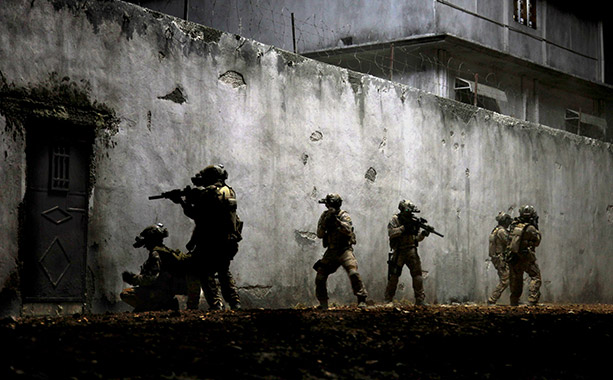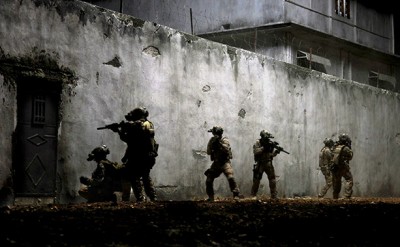Something tells me I could type that title and walk away, and the comments section would take care of itself. No need for further input. Good game, everyone.
Why is there so much anger over this movie? Many say it exaggerates the positive relationship between torture and the death of Usama bin Laden. The first 30 minutes are essentially a brutal interrogation sequence, punctuated by brief respites of dense political and military jargon. Others say the film’s detractors overreact. They cite that instances of torture were actually employed prior to Usama’s assassination, and the film merely reports on it.
Both of these positions were virulently argued before the film was ever released. Some time before its distribution, conservatives cried foul: the movie was going to be an Obama love fest. Surprisingly, after its completion, the most common criticism has been its supposed hyper-conservatism. That’s one hell of a turn-around.
So I watched it.
When a director’s work is compared to the hateful films of Hitler’s official propagandist, either the accuser has gone off the deep end, or the film is blatantly amoral. I fear I risk having myself labelled as either a pro-torture, gun-swinging hyper-conservative — or a flag-burning, hummus-chomping super-liberal — by engaging the film at all. Nevertheless, here goes.
Highlights. Director Kathryn Bigelow has a real gift behind the camera. Her intimate, slightly shaky blocking invites the audience into a scene. It’s slight but immersive, not nauseating like other “docu-dramas” (cough-PaulGreengrass-cough). The film has surprising energy for what amounts to two hours of bureaucratic circle-jerking and impenetrable lingo, and only a half-hour of actual military conflict.
Actor Jessica Chastain as protagonist Maya grounds a frantic, harried movie in a solid, emotionally rich narrative throughline. It’s a common script device, but necessary in a film with so many on-screen characters, each with conflicting political interests, ethical perspectives and responsibilities. Any other structure, and the film would collapse on itself.
Furthermore, the film’s climax — as American military forces storm the bin Laden compound — is among the most adeptly executed sequences in contemporary cinema. Bigelow employs every gift she has as an action director with stunning confidence and meticulous restraint. The denouement of “Zero Dark Thirty” is a panic attack-inducing thrill.
Torture. The effects of torture are significant, for both victim and perpetrator. The film packs an unapologetic punch. But as a method of extracting information, torture is slow and ineffectual. The information gathered is often false, misleading, and largely abandoned. “24” this is not.
Islam. Islam is the faith of both “good guys” and terrorists, though they are very different versions of Islam to be sure. Kudos for that. An American leader is once seen bowing on his prayer rug, chanting the daily liturgy. He then sits at his desk and agrees to devote more resources to the bin Laden hunt. The terrorists are Islamic extremists. Their cries of “Allah is great” are upsetting, a perversion of a peaceful religion.
Gender. Much to-do has been made about the use of a central female protagonist. Some praise the film as feminist; others see it as a contrived shout for “girl power.” Jessica Chastain’s performance is superb. She is simultaneously distant and immediate: a character with little context who shines by the sheer talent of the performer who brings her to life. I’m quite thankful the film avoids the too-popular trope of having a strong female lead who must deal with her own inner demons while trying to survive in a man’s world. Early on, it was unclear if Bigelow would take that route. No dice.
All this said, is “Zero Dark Thirty” a good film? Sure. It’s perhaps the best of the year, with “Lincoln” as a close second. Even so, the dust will have to clear before its significance can be seen in context.
Of the controversy itself, it’s unreasonable to converse about a work of art without having seen it. Period. Many have waited till after seeing it. For those of you who reserved thoughtful judgment, thank you for contributing to intelligent civil discourse, whether or not you agreed with my interpretation of the film. Many probably still disagree; I welcome your respectful thoughts in the comments.
Art is a dialogue, a conversation. Without a shared experience of a thing, to blindly praise or condemn it is absurd. Criticism is always legitimate, but in most cases it should be framed as subjective and personal, not the litmus test for political or social acceptability. All this damning and lauding is exhausting.
To quote Jessica Chastain’s character, I’ll say of this whole mess: “It’s kinda fucked up.”
But the movie’s a winner.

 “
“